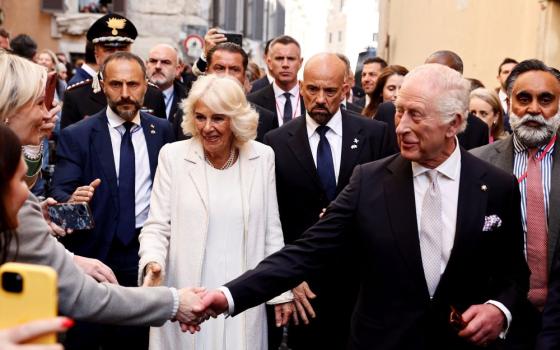The Pope's visit to Cuba just reminds me of how retrograde U.S. policy toward the island nation remains.
Although the Vatican is critical of socialism in Cuba and of human rights there, it still has full diplomatic relations with the Cuban government. Indeed, because the Vatican has representation there, it has finally succeeded in improving the status of the church in Cuba and developing working relations with the Cuban government to influence human rights and the release of political prisoners.
The Vatican's realistic policy is paying dividends. Not so with the case of the stubborn and unrealistic U.S. policy that continues to refuse to recognize a government that has been in power for more than five decades.
Instead, we continue to have an economic embargo on Cuba that the rest of the world ignores. In fact, the rest of the world, with the exception of the United States and Israel, has diplomatic and economic relations with Cuba. Despite the American effort to isolate Cuba, we have only isolated ourselves on our Cuban policy.
It's time to change this, and it is my hope that whoever wins our presidential election will have the political courage and establish full relations with Cuba. President Richard Nixon in the early 1970s recognized what we used to call "Red China," and so too can a U.S. administration today recognize Cuba.
As I tell my students, how can we have full relations with Vietnam today, a nation that we went to war against and where we lost 60,000 American lives? Today, there are Kentucky Fried Chickens and other American corporations in Vietnam. Why can't this happen with Cuba? Our current Cuban policy does not advance our national interest, and we need to recognize this. We will have more influence on Cuba with full relations than with little or none.



